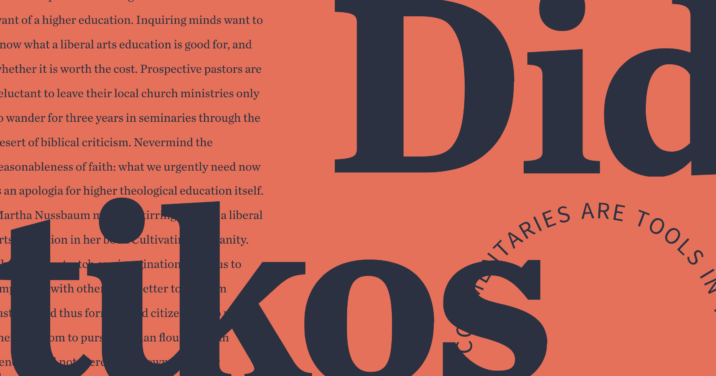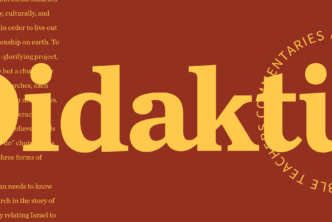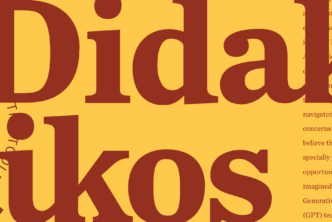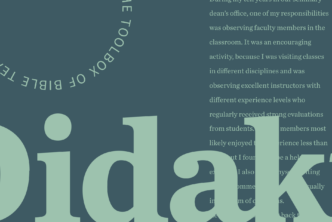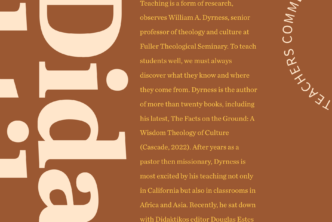It is a truth decreasingly acknowledged, that a student in possession of a good mind must be in want of a higher education. Inquiring minds want to know what a liberal arts education is good for, and whether it is worth the cost. Prospective pastors are reluctant to leave their local church ministries only to wander for three years in seminaries through the desert of biblical criticism. Nevermind the reasonableness of faith: what we urgently need now is an apologia for higher theological education itself.
Martha Nussbaum makes a stirring case for a liberal arts education in her book Cultivating Humanity. The classics stretch our imaginations, help us to empathize with others (the better to do them justice), and thus form “world citizens” who use their freedom to pursue human flourishing in general, and not merely their own narrower interests. Oxford University still offers a course in “Greats” (viz., classics), with the aim of forming students who understand and can carry on the grandeur that was Greco-Roman civilization.
The ancient Greeks viewed education as a means to cultivate not generic humans but citizens, people who could represent and contribute to the common good of their polis and be, say, good Athenians. How much more should citizens of heaven (Phil 3:20) learn to cultivate their new humanity in Christ! Oxford may have its Greats, but theological education provides a Great than which nothing greater can be received. “The best way to cultivate humanity is to study divinity.” Market that!
Christians are citizens of the city of God, members of a holy nation (1 Pet 2:9). Theological education matters because training those who can form citizens of the gospel matters. The ultimate goal of theological education is to foster theological literacy—everything students need to know, and be able to do, in order to become competent citizens of the gospel, representatives of the new humanity in Christ. Accordingly, this series of Sage Advice essays will survey four types of citizen-cultivating literacy: biblical, cultural, doctrinal, and ecclesio-historical.
To read not Greats but the Greatest Story Ever Told, and to read it rightly, is arguably the project that unifies the Christian university and integrates the various departments in a theological school. The Bible does not tell us everything we need to know about everything; rather, it tells us everything we need to know about the one thing that puts everything else into proper perspective. The Bible tells us what we need to know to flourish as citizens of heaven while pilgrims on earth.
Biblical literacy means, first, being able to read the various books of both Old and New Testaments as a unified story about what God has done, is doing, and will do to form a people who will glorify him in all they do and with whom he will share his own triune life. Biblical literacy means, second, understanding God, the world, oneself, and others in relation to the ground, grammar, and goal of creation and redemption: the person and history of Jesus Christ.
Other schools train us for this or that profession, but the school of Scripture trains us to make a profession of faith, a profession that is also our interpretation of the story that frames, illumines, and transforms our lives. To read the Bible rightly is to grasp one’s most essential identity as a person, a “strange new world” citizen, made and remade in God’s image to glorify God. Biblical literacy is essential for cultivating our true humanity.

***
This article was originally published in the August 2022 issue of Didaktikos. Slight adjustments, such as title and subheadings, may be the addition of an editor.
Related articles
- How to Discover Your True Identity in Christ
- Christian Apologetics: Truth, Love, and Faith Conversations
- Who Is Jesus? Answering Life’s Most Important Question
Related resources
Mobile Ed: TH325 Theological Interpretation of Scripture in the Church (5 hour course)
Regular price: $189.99
Hearers and Doers: A Pastor’s Guide to Making Disciples Through Scripture and Doctrine
Regular price: $13.99
Theological Interpretation of the Old Testament: A Book-by-Book Survey
Regular price: $25.99
Beyond the Bible: Moving from Scripture to Theology (Acadia Studies in Bible and Theology)
Regular price: $17.99

